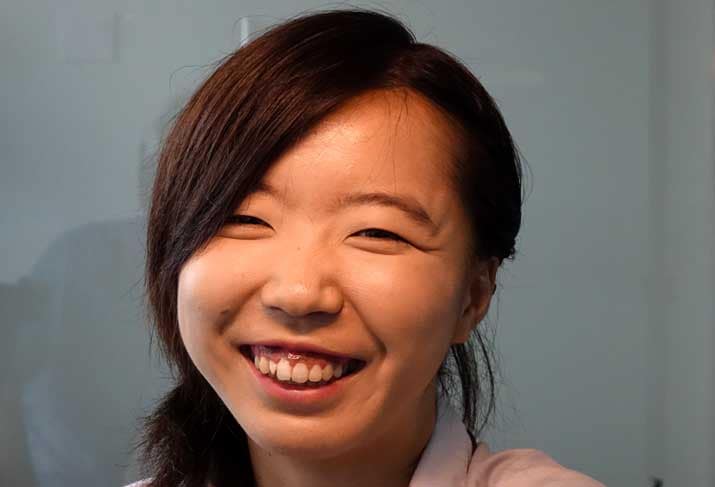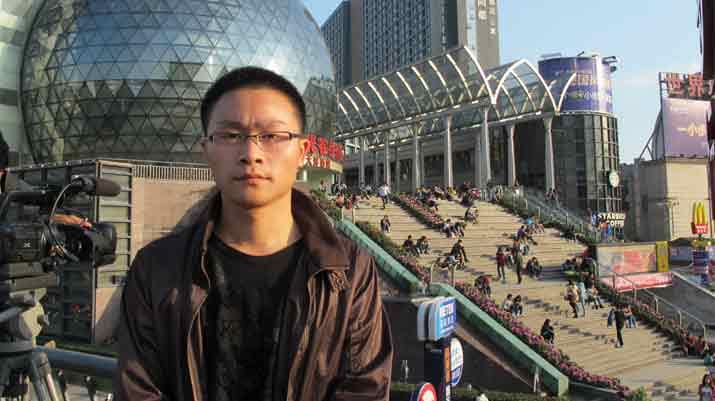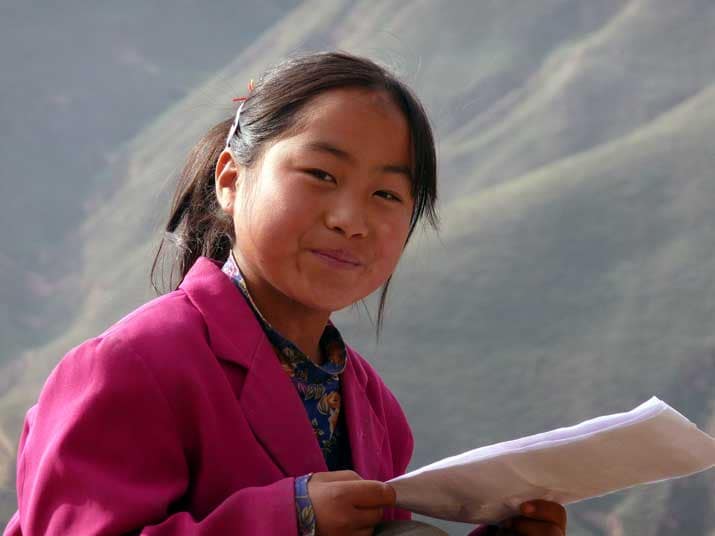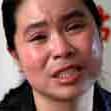A WAY OUT
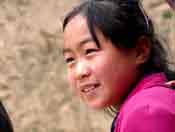
A documentary film about three young Chinese from different family backgrounds striving to find their future. With the backdrop of current Chinese educational system, the financial conditions and living environment of the three subjects vary, with one student from Beijing, a metropolitan area, one from Xianning, Hubei Province, a small town in the middle of China, and one from Huining County, Gansu Province, the most poverty-stricken area in China. They handle their critical decisions of their life in their own way, which results in different fate. The film follows the 3 characters for 6 years and documents their dreams, expectations, fear and hopes.
The 20 year-old Hanhan Yuan used to be a student of the High School Associated to the Central Academy of Fine Arts. But her mother applies for and gets approved to take a year off her schooling because the mother is afraid that Hanhan might be dismissed by the school due to absenteeism. Since she does not need to go to school, Hanhan feels so bored staying at home that she decides to open her own bar. By summer, she has rented an establishment of 8 square meters near Nan Luo Gu Xiang street in Beijing, hand-made bar counters, stools, bought paints and decorated the room all by herself. On the day of the grand opening, only two clients arrive, and they are her classmates, who, like her, also get a temporary break permission from the school. The bar is frequented by few clients and sees only Hanhan herself quietly sitting on duty there. Then does she realize that her boredom still follows her even if she has left her parents’ home, which she does not feel at ease at, and even when she stays in her own space, the bar.
Hanhan Yuan has been passionate about painting since her childhood and not without talent. After she quits her school, her mom has tried to find a way to send her abroad for further education. First, mom works on institutions in the U.S.; later, as she learns that Germany is better for students of fine arts, she then shifts to Germany schools, preparing application paperwork required by German schools. Mom believes that overseas education makes the best sense for Hanhan. But Hanhan herself is not very zealous over the option. However, she does not seem to have any other choices. Therefore, she tries her best to cooperate and paints works accordingly, in a hope of landing in a new country by the coming Spring Festival.
In 2010, Hanhan received the admission letter from Bauhaus University in Germany. She stayed in Weimar from September 2010 to September 2011 studying German. During her study there, she went to send an application for her friend to Prague Film School where she found herself in deeper love with Prague than Bauhaus. So she made every possible effort to transfer to a school in Prague. Upon the completion of her first year in college, she decided to go back to Germany to continue her study. In September 2012, she went to Düsseldorf Art Academy and started all over again from first year of college.
Jia Xu, also twenty years old, re-takes the Chinese National Higher Education Entrance Examination. He lives in Xianning, Hubei Province, China, where the only future for young people there is to get admitted to a university. For both the exams of 2007 and 2008, Jia Xu’s scores are 497, which is only enough for a third-level university, the lowest level, in Hubei Province. Obviously, Jia is not happy with such an outcome, for, in his opinion, he can get a better opportunity and brighter future only by entering a better university. There fore he decides to take the annual exam for the third time, going to the same high school with his brother two year his junior. His mom, from a poor farm in the countryside, facilitates the endeavor of the brothers by renting a room of 20 square meters near the school, where all three of them live under one small roof. They only sleep five hours everyday and commit as much time as possible to the preparation of the test.
The parents of Jia Xu have very little schooling and have experienced discrimination and enough scornful looks when they earn a living by working in cities. They deeply understand that those who do not get education will only be able to live at the bottom of the social ladder forever. So they do not want their next generation to re-live their life. Xu Jia’s late-father used to tell him that he would rather spare his food and other necessities, go through dangers, toils, and snares, to make sure that the kids can get proper education. In the 2009 exam, the two brothers finally get admitted to the universities of their wish. In addition, with the help of a local TV station, they receive financial sponsorship. Jia successfully enters the Hubei University of Technology and starts his long-waited academic life.
2012 is Xu Jia’s last year in college. With less academic work, he focused his attention mainly on finding a good job. In order to get better job opportunities, he enrolled in a driving school and planned to get his driving license at the end of the year to make him more competitive in the job market. A job with better payment will also alleviate his burden of repaying the four-year student loan. Xu Jia’s girlfriend is having an internship in a hospital in Guangdong Province. Their future job choices will become a big test for their relationship.
12-year old Baijuan Ma is in Grade two of Wild Sparrow Valley Primary School, Chengmu Village, Huining County, northwestern China’s Gansu Province. The school, which has a two-year program, has only two teachers and 5 students, with Baijuan having one classmates. Upon finishing the second grade there, Baijuan will continue her schooling by transferring to Chengmu Village Primary School, which means, she needs to cover 32 Li, or 16 Km of distance to and fro everyday. She enjoys the journey because she wants to go to school. She hopes to go to a university in Beijing when she grows up, and then find a job to make money to buy flour, build a house and dig a water-gathering pit, as her family does not have enough flour for food, nor enough drinking water. Among the items on her wish list are also to try a train trip to Beijing, to admire wide streets there, as she has never been to any city. The furthest point she has ever adventured to is the Touzhaizi County, a little over 15 KM from her home, and there she went with her elder brother in a tricycle.
There is a severe water shortage where she lives. Their drinking water is obtained by a pit on the ground which gathers rain water. As a result, she does not know what it means to take a shower or a bath and many local people have never ever taken a shower since their birth. However, she is in a happy mood, simply because she can go to school everyday, and her dream is to be able to go to school without interruption.
In 2010, Ma Baijuan’s elder brother moved the whole family from Gansu Province to Zhongwei City in Ningxia Province. Ma Baisheng dropped out of school after a semester and continued her study in a local school. As she went to school later than others, she finds it difficult to study and falls behind others in some courses. But no matter how difficult it is, she still hopes to continue her study.


